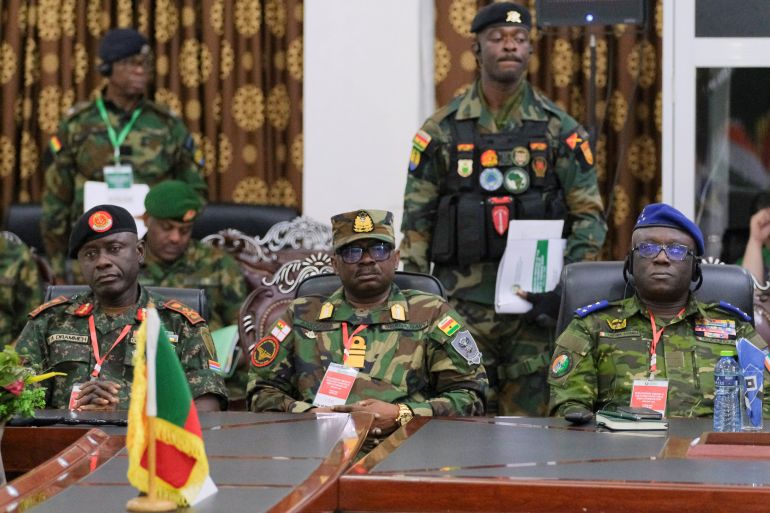The regional coalition of West African nations has agreed to activate a standby military force, to be employed as a final recourse should diplomatic attempts prove unsuccessful in addressing the aftermath of the recent coup in Niger. The main alliance of West African states has established a designated "D-day" for a potential military intervention aimed at reinstating democracy in Niger, following the overthrow and detainment of President Mohamed Bazoum by military leaders last month.
The Economic Community of West African States (ECOWAS) made the decision on Friday to mobilize the standby force if diplomatic efforts fall short, as confirmed by a senior official who refrained from revealing the specific timing for such activation. "We stand prepared to take action whenever the directive is issued," stated Abdel-Fatau Musah, ECOWAS Commissioner for Political Affairs, Peace and Security, during the concluding session of a two-day gathering of West African military chiefs held in the Ghanaian capital, Accra.
Musah further emphasized that the chosen "D-day" has been determined, with careful planning in place for the prospective intervention. He underscored ECOWAS's ongoing pursuit of peaceful engagement with the military leadership in Niger, noting, "At this moment, we are in the process of organizing a mediation mission into the nation, signifying that all avenues are being explored." The conference of defense chiefs convened to meticulously outline the operational details of the potential military undertaking to restore President Bazoum, if ongoing negotiations with the coup instigators do not yield progress.
Musah asserted, "There should be no doubt that in the event of all other options being exhausted, the resolute forces of West Africa, comprising both military and civilian components, stand ready to heed the call of duty." The military officers who ousted Bazoum on July 26 have defied appeals from various quarters, including the United Nations and ECOWAS, to reinstate him. A bloc representative disclosed on Thursday that the majority of ECOWAS's 15 member states are willing to contribute to the joint military force, with the exception of Cape Verde and countries also under military rule—Mali, Burkina Faso, and Guinea.
Bazoum, whose election in 2021 marked a significant milestone in Niger's tumultuous history, has been under house arrest with his family at the presidential residence since the coup. International concern has grown regarding his well-being during detention. ECOWAS has struggled to prevent the region's frequent coups, with Burkina Faso and Mali each experiencing two within a span of three years.
The coup in Niger has been viewed by the global community and ECOWAS as a tipping point. In addition to the threat of military intervention, the coalition has imposed substantial economic and travel sanctions. However, as time passes without decisive military action and negotiations remain at an impasse, the military leadership in Niger is solidifying its grip on power, leaving ECOWAS with limited alternatives. Any use of force could exacerbate the instability in West Africa's impoverished Sahel region, which is already grappling with a decade-long conflict involving armed groups.
Niger's significance transcends West Africa due to its strategic uranium and oil reserves, along with its role as a hub for foreign troops engaged in countering armed groups affiliated with al-Qaeda and ISIL (ISIS).

